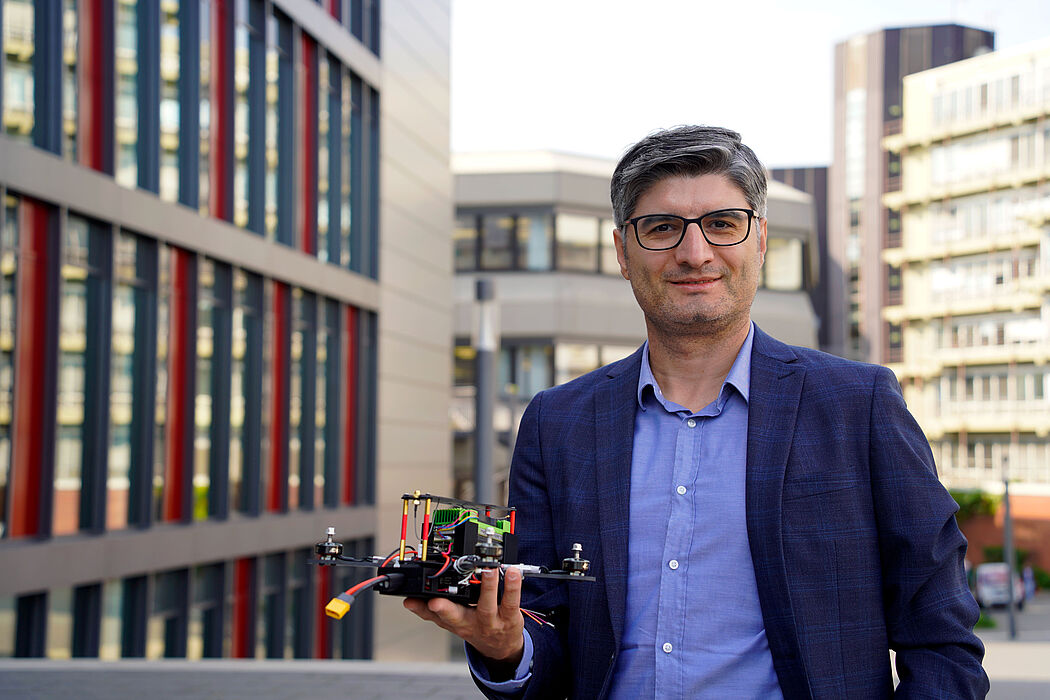New EU project for the further development of flying robots with participation from Paderborn.
Flying robots are already used, among other things, to check wind turbines for damage and can thus take on important tasks that are risky for humans. To enable even more areas of application in the future and to optimize the technology, an international consortium now wants to research the use of artificial intelligence (AI) in the development of flying robots. The four-year project, in which scientists from the University of Paderborn are also involved, is being funded by the European Union with almost eight million euros and will start in November. Around 740,000 euros of this will go to research in Paderborn.
Technology meets nature
The aim of the project is to develop flying robots that use AI to adapt optimally to their respective tasks and environments, making them more efficient, more resistant and safer than previous models. Nature serves as a model for this. "If you compare flying creatures such as mosquitoes and eagles, there are significant differences both physically and cognitively. In the case of flying robots, on the other hand, it has so far seemed almost as if there is a standard design that is supposed to fit all possible applications. A paradigm shift toward flying robots that are adapted to their environment and tasks is necessary," says Prof. Dr. Erdal Kayacan, head of the "Control and Automation Technologies" group involved in the project.
International consortium with individual areas of expertise
The expertise of the Paderborn scientists lies in proposing task-specific objective functions and creating scenarios for the respective simulation. "We first want to develop a mechanism for translating abstract goals into algorithmic functions. This is followed by an evolutionary simulation framework that can generate different scenarios," Kayacan said.
In addition to the Paderborn University, the project involves the Technical University of Norway (project coordinator), Delft University of Technology (Netherlands), Luleå University of Technology (Sweden), the Free University of Amsterdam (Netherlands), the Interuniversity Microelectronics Centre (Belgium), the Swiss Federal Institute of Technology Zurich (Switzerland), the Center for Security Studies (Greece), and the companies VoxelSensors (Belgium) and Biodrone (Norway).

